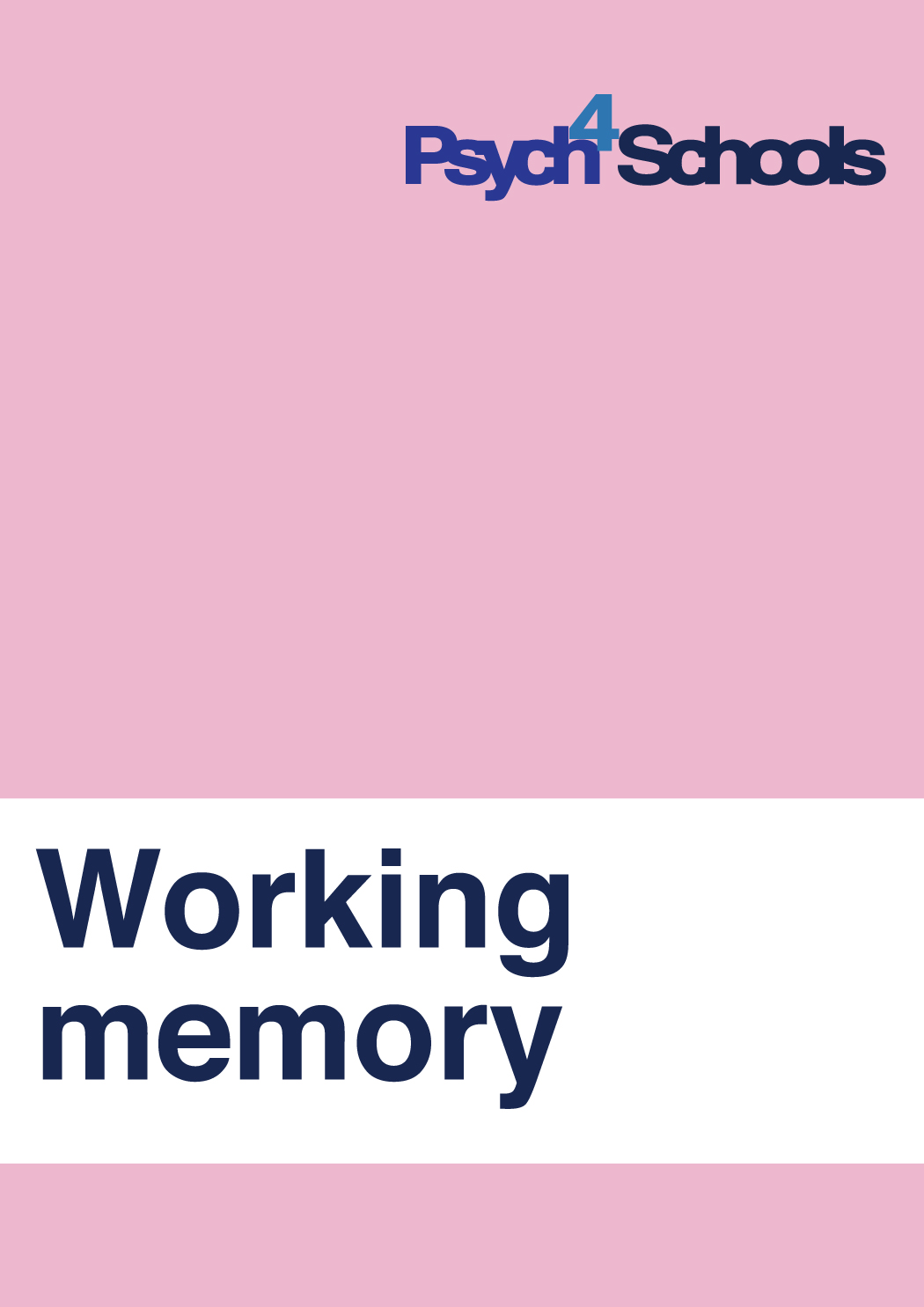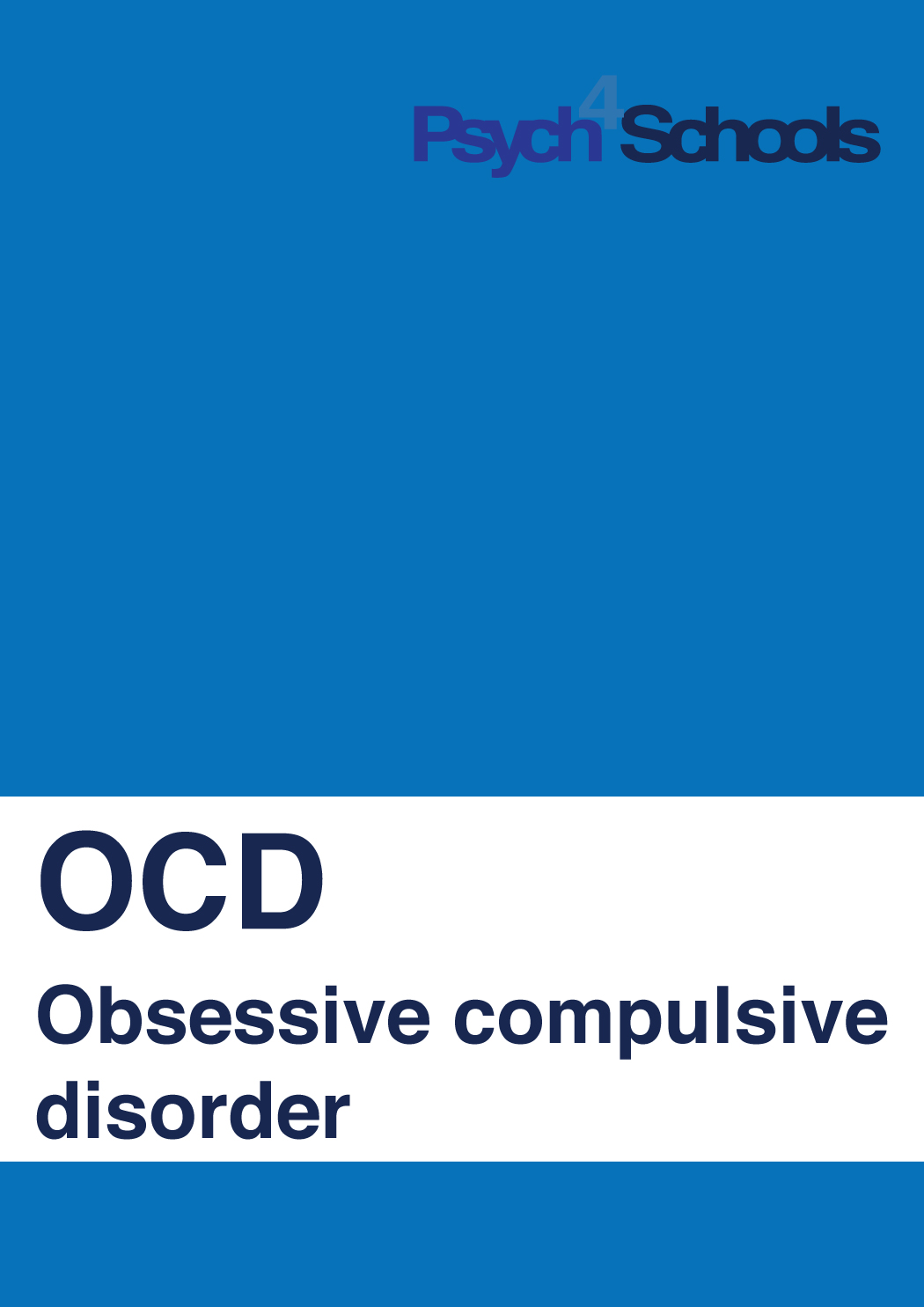Working memory difficulties
The following is an excerpt from the ebooklet Working with children with working memory difficulties by Murray Evely and Zoe Ganim.
Introduction
Working memory refers to the ability to hold information in short-term memory while simultaneously processing it. We use working memory to meaningfully participate in everyday activities such as conversations, to decode unknown words when reading, and to do mental arithmetic. For example, we may use our working memory to decode an unknown word when reading – so, we might say and hold the letter sounds ‘f’ ‘r’ ‘o’ and ‘g’ in our mind (working memory) and then combine the sounds to decode the word ‘frog’.
Along with reading, other classroom activities that involve working memory include the following of multiple-step instructions, copying sentences from the board, spelling, maths and participation in discussions and debates.
Children with working memory difficulties have a reduced capacity to temporarily store and process information in this short-term ‘mental workspace’.[1] Gathercole, S.E. and Alloway, T.P. (2006). Practitioner review: Short-term and working memory impairments in neurodevelopmental disorders: … Continue reading
While many of these children will have average or higher than average verbal and nonverbal intelligence, they can have difficulty with:
- paying attention and concentrating
- following lengthy instructions
- decoding words and learning to read
- complex thinking
- personal organisation.
Working memory continues to develop in children until around mid adolescence.[2] Gathercole, S. E. and Alloway, T. P. (2007) Understanding working memory:. A classroom guide. London: Harcourt Assessment. As children with working memory difficulties mature, the gap between their working memory capacity and that of their peers significantly increases.[3] Gathercole, S. E. and Alloway, T. P. (2007) Understanding working memory:. A classroom guide. London: Harcourt Assessment .
Impact of working memory difficulties
Working memory is crucial in almost all classroom learning, particularly in the areas of numeracy and literacy. Working memory is a cognitive ability[4] Wendling, B.J. and Mather, N. (2009). Essentials of evidence-based academic interventions. New Jersey: John Wiley & Sons, Inc. See … Continue reading and problems in this area significantly impact on a child’s academic performance. Recent research suggests that working memory may be a better predictor of learning outcomes than a child’s full scale IQ[5]Alloway, T. P., Gathercole, S. E., Kirkwood, H. J., & Elliott, J. E. (2009). The cognitive and behavioural characteristics of children with low … Continue reading as children with working memory difficulties find it more time-consuming and mentally draining to store and process complex information important for academic learning
Working memory difficulties are often associated with:
- poor phonological awareness
- learning disorders and learning difficulties
- attentional issues
- anxiety, worry and trauma.
While young children with working memory difficulties do not generally have issues with social relationships, this can change as they get older, they begin to experience frustration related to having a poor working memory. This may present as acting-out behaviours including fights with peers.
In the classroom, children with working memory difficulties frequently:
- appear inattentive or not to be listening
- daydream
- forget what they have been taught (because it wasn’t actually learned)
- lack confidence in themselves as learners
- have difficulty solving problems
- can’t fully remember what they are supposed to be doing
- have low academic achievement in numeracy and literacy
- have difficulty following instructions with two or more parts
- have difficulty copying sentences from the board
- do not contribute to class discussions or volunteer to answer questions
- feel highly frustrated, which may lead to acting-out behaviours
- demonstrate erratic performance—appearing to remember some things one day, but not the next
- do not start or complete their work or homework independently.
Children with working memory difficulties often feel frustration and anxiety around their academic performance. This may arise as a result of forgetting what to do next or forgetting parts of a question, story or instruction.
In the early years of schooling, children with working memory difficulties may have difficulty decoding words because they have a limited capacity to learn and hold letter sounds in their mind so that they can blend the sounds. For older children, working memory difficulties can lead to gaps in knowledge as the transfer and processing of information from short to longer-term memory is inefficient.
An example of a working memory issue
Consider this scenario. A boy in Year 5 is asked to mentally solve the following question, presented verbally. ‘Fred picked 10 apples from his dad’s apple tree. He gave three apples to Van and four apples to Pete. How many apples did Fred have left after he ate one?’ The boy either asks for the question to be repeated, or he answers incorrectly. The same boy is then given a similar question, but this time the problem is written. He answers it correctly the first time.
This occurs because a child with working memory difficulties is likely to answer incorrectly or not at all to a spoken question with no visual or written supports, as they do not have the memory capacity to mentally hold all of the information about the apples while simultaneously solving the problem. When the question is written, the boy may answer it correctly because he did not need to remember the number of apples each person had. Being able to re-read the information relieves the burden on working memory, allowing the child to work out the answer without needing to store the relevant information in their memory.
Working memory training
There are a number of working memory training programs available for adults and children. Currently there appears to be no reliable evidence that working memory training generalises to other skills, particularly in the area of verbal working memory.[6] Melby-Lervåg, M., & Hulme, C. (2012). Is working memory training effective? A meta-analytic review. Developmental psychology. … Continue reading In other words, training to increase working memory capacity needs to be focused on the task for which it is required. For example the child may improve in their ability to retain and use spoken numbers to phone someoneif they rehearse remembering spoken phone numbers for a short period prior to dialling. This skill, however, will not necessarily transfer to an increased ability to hold numbers in their head for solving verbal arithmetic problems. Therefore, training to improve working memory needs to be targeted to the specific skill. Alternatively, creating visual and written records and taking notes can help to reduce the load on the child’s working memory and allow them to complete the task.
Limited evidence suggests that working memory training may have some lasting generalised effects for visual working memory training.[7] Redick, T. S., Shipstead Z., Harrison T. L. et al. (2012). No evidence of intelligence improvement after working memory training: A randomized, … Continue reading
Working memory, anxiety and associated issues
Problems associated with lack of sleep [8] Psych4Schools, Members Forum, Students who can’t fall asleep at nights, 2011 See … Continue reading and chronic tiredness, on-going trauma[9] Australian Childhood Foundation, Making Space for Learning, Ringwood, Victoria, 2010 See www.childhood.org.au anxiety, can also impact on a child’s working memory. To help ensure a child’s basic physiological needs are met, see the Psych4Schools ‘Promoting student wellbeing’ blog post.
To assist a child with on-going trauma and anxiety, see Psych4Schhol resources on anxious or worried students, and ebooklets on Working with children who worry excessively, and Working with children who have experienced a recent trauma and Working with children diagnosed with PTSD and the forthcoming Working with children who are anxious.
Working memory and phonological difficulties are both strongly associated with dyslexia. For information about this condition, see the Psych4Schools ebooklet Working with children with dyslexia.
How are working memory issues diagnosed?
An IQ assessment can enable a psychologist to identify children who have working memory issues. IQ tests such as the WISC-IV[10] Wechsler Intelligence Scale for Children, Fourth Edition, Australian Standardised Edition, David Wechsler, PsychCorp, 2005, … Continue reading are recommended as their administration can assist in ruling out or identifying other disabilities or co-existing conditions, as well as giving a working memory score.
Caution
Without proper diagnosis and effective classroom intervention, working memory difficulties can impact on a child’s academic performance. It is important to rule out hearing problems, auditory processing disorder, issues such as figure-ground difficulties or anxiety. If in doubt, it might be appropriate to refer the child, via the parents, to an educational audiologist.
Teachers should also refrain from saying a child is not learning or having problems learning because of working memory difficulties unless this diagnosis has been substantiated by a psychologist.
Strategies to support the child with working memory difficulties
Address learning difficulties or issues impacting on working memory
- Follow any recommendations made by the child’s doctor, speech pathologist, psychologist or other accredited specialists.
- Effectively address poor phonological skills and learning difficulties. See Psych4Schools ebooklets Working with children with learning difficulties and Working with children with dyslexia and the forthcoming ebooklet Working with children with dyscalculia (mathematics disability). It is critical to try to ensure that the child can rapidly name and write each lowercase letter, say their associated sounds, understand number quantities, count without error and recall number facts. Practice and repetition can be important to help these foundation skills become automatic. Some of this work may need to be done privately from other students to avoid embarrassment.
- Assist the child who is anxious or has experienced trauma to feel safe and connected to others. Feeling safe reduces the child’s anxiety and improvements in working memory should be seen if their deficits are the result of anxiety. Key strategies include building trust and a positive, sustaining relationship with one or more teachers and students. Provide impromptu, fun experiences on a regular basis to help relieve stress and worry.
ISBN 978-1-921908-00-2
Copyright © Murray Evely and Zoe Ganim 2013
No part of this excerpt may be reproduced or reprinted without permission in writing from the publisher.
Click here to read copyright details, summary of the licence and terms and conditions to use and reproduce our digital materials granted to authorised users.
References
This article is an excerpt from the ebooklet Working memory difficulties.
Download the complete ebooklet for full access to strategies and resources, including:
- Help the child to believe in their capabilities
- Build attention skills and monitor learning
- Reduce the load on working memory
- Promote oral language and phonological skills
- Use meaningful and purposeful learning activities
- Teach strategy development and personal organisation
- Build long-term memory
- Play games
- Resources





